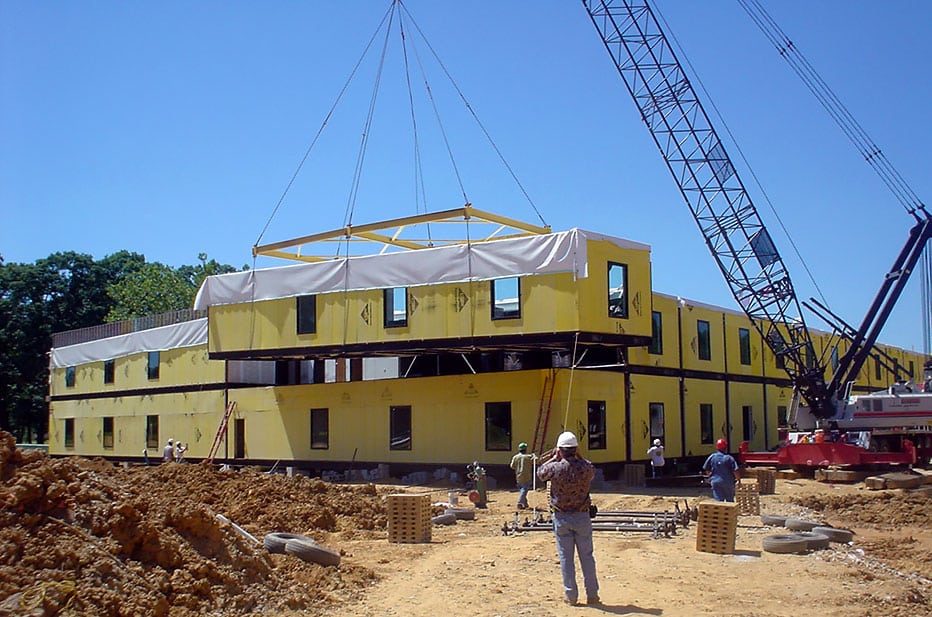 There are a number of reasons why modular buildings are up to 20% less costly than conventionally built structures. In this installment we examine the fifth reason behind the cost savings associated with modular buildings: less site disturbance and environmental impact.
There are a number of reasons why modular buildings are up to 20% less costly than conventionally built structures. In this installment we examine the fifth reason behind the cost savings associated with modular buildings: less site disturbance and environmental impact.
Conventional construction projects pose significant environmental risks that developers and contractors are required to manage during the construction process. Construction projects that fail to control pollution can cause damage to waterways and wetlands, kill fish, upset aquatic ecological systems and wildlife communities, and result in contamination of land and groundwater. To address the environmental impact of construction the Environmental Protection Agency (EPA) enacted a set of guidelines for environmental construction management, and the United States Green Building Council (USGBC) offers LEED credits for minimized site disturbance and construction site management. Many of these costly environmental impact issues can be mitigated through the use of modular construction.
Stormwater discharges from construction activities (such as clearing, grading, excavating, and stockpiling) are regulated both under regional ordinances and the National Pollutant Discharge Elimination System (NPDES) stormwater program. Construction sites must obtain stormwater discharge permits from the local or state government, or directly through the EPA. General contractors are responsible for preventing stormwater pollution risks including erosion, sediment and construction related pollutants that include gasoline, diesel, hydraulic fluid, oil, fertilizers and acid wash agents. Failure to comply with local construction site run-off requirements may result in temporary work stoppages, forfeiture of bonds, monetary fines or other enforcements. Stormwater pollution management plans are one more thing general contractors must plan for and manage, and are another expense added to the bottom line of each construction project.
Modular construction greatly reduces a construction project’s overall duration, site disturbance and environmental impact. Modular construction requires less workers, machines, traffic, equipment, and inventory at the construction site for the duration of the project. With the primary part of construction happening off-site Palomar’s modular construction strategy helps reduce the environmental impact and associated management costs.
Contact Palomar Modular Buildings to learn more about how we can reduce the environmental impact of your next project while finding ways to reduce your project cost.
